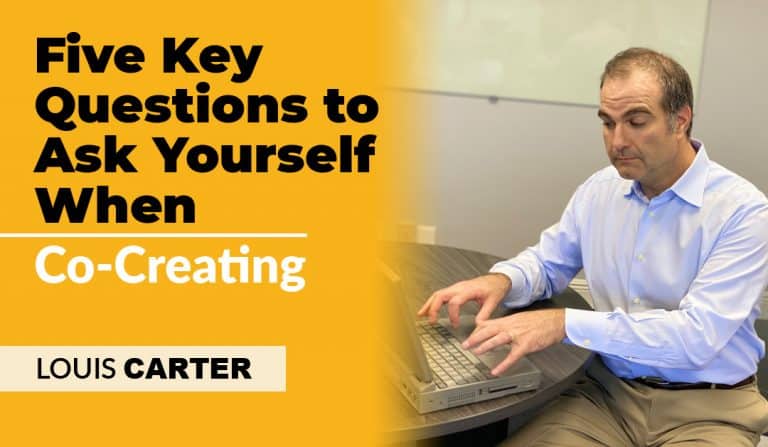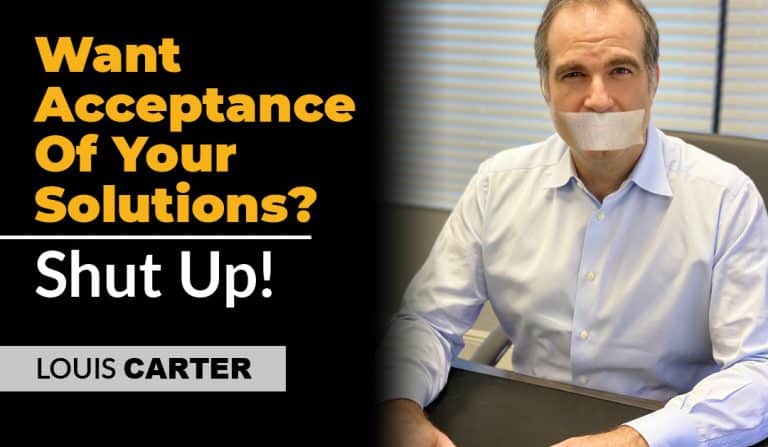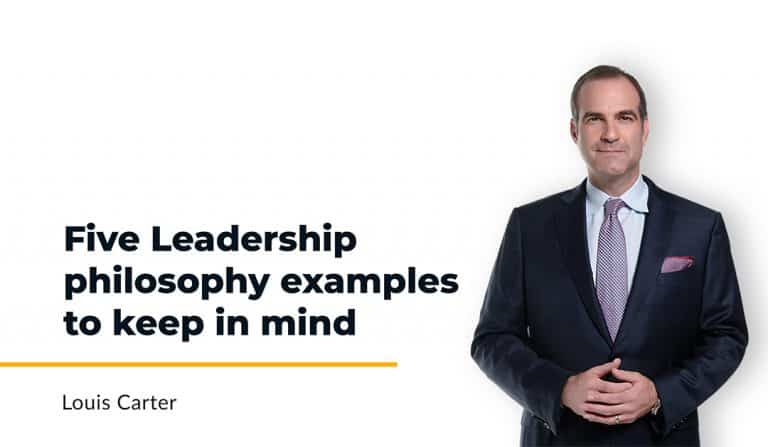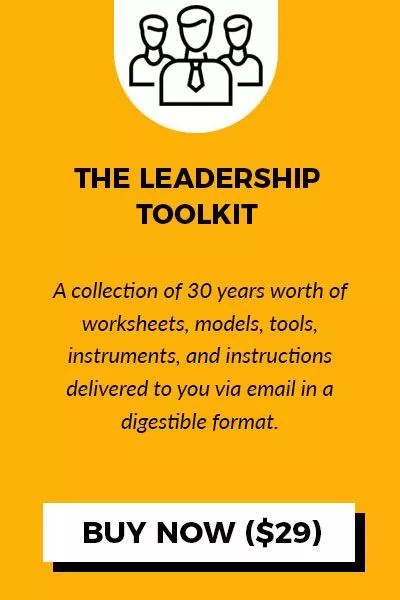Many underestimate the importance of personal connection- and especially how difficult and complicated it can be for most people to practice.
Humans are emotional beings, and being able to forge meaningful personal connections with those you interact is an essential skill.
You have two choices. Make a statement through anger and judgement, or invite a different point of view, and see what change can happen together. Guess which choice wins 99.99% of the time? Connect personally with emotional regulation, empathy and respect and it is more than reasonable to assume (and the research proves it) you will always win.
As Ray Williams, CEO of Springfield Clinic once said to me, “Great success happens when we change our negative attitudes to gratitude, positivity and joy.” A great CEO and person, Ray Williams of Springfield Clinic lives these values and practices daily. And he works hard at it. He makes it a daily practice to foster a healthy culture filled with positive relationships – just as he does with his own family. Ray values great character, positivity, and becoming better each day. These are some of the attributes I know Ray practices to achieve positive personal connection. He has brought these practices to Springfield Clinic, leads and lives its brand of a community of caring and personal connection with patients and physicians.
Here are the 6 Ways to forge more personal, stronger relationships that last, and create a workplace and life that is built on love rather than fear.
1) Be Honest
Nothing is more off-putting than feeling like you are being misled, or attacked. When you’re offering a divergent or heated point of view, be honest about what you want. People know when they’re being misled, and naturally this makes them less receptive. Approaching those you would like to help with honesty and presenting earnest reasons why you’re asking for a specific decision or outcome, is a sign of personal connection and can help you to both come to a better place.
2) Be Attentive
Presence is a key part of personal connection. It’s easy to get lost in thought in the modern world where there’s always so much on our plates. When having a personal interaction, however, it’s important to remain in the moment. Once it becomes apparent that your focus is not entirely on the person you are interacting with, they’re likely to get offended. It’s hard to feel important when you can’t even hold someone’s attention in a direct conversation. Show your personal connection by resisting the urge to let your mind wander.

3) Be Empathetic
One of the most effective ways to relate to anyone is to put yourself in their shoes. Individuals with the ability to maintain strong personal connection typically find it easy to empathize with others. When you demonstrate empathy, it forges a stronger connection. Respond to reservations expressed by imagining you had those problems and showing how you may help in whatever way you can. Look for short term solutions within your power that assuage challenges. The better you are at seeing things through the other’s eyes, the better you can serve them and the higher the likelihood it is of making great change happen.
4) Be Understanding
A common sign of lower personal connection is an inability to be understanding of others’ actions. When others express reservations or discuss a problem they’ve had, you can’t take it personally. Instead, try to be empathetic to the fact they simply want or need something that may be triggering them. Keep a cool head when discussing their concerns, and work toward a fix that leaves you both happy. If you are triggered, and find it hard to manage your emotions, then stop and think about the effects of your actions before doing it.
Example: I know an employee of a company (we will call him “Bob”) who hated that the CEO just changed his job without notice. The CEO cut Bob’s salary by 10% and he was scared for his family and children that he would not be able to pay the bills. So Bob stormed into the CEOs office without appointment, left a letter of resignation and then stormed out.
What Bob didn’t know was that the CEO did everything in his power for him not to be fired – so he had to revert to cutting 10% off his salary. The CEO was helping Bob keep his job, and planned to increase his salary once they got out of the financial crisis. Was there miscommunication from HR and the CEO to Bob – no. However, because of Bob’s lack of empathy, emotional regulation, understanding the full situation, he lost a job that day and not just a pay decrease.
5) Be Emotionally Regulated and “level headed”
Many of the above principles contribute to a fundamental part of personal connection: emotional regulation. Emotional regulation requires that you to have a full understanding of your triggers so you don’t make snap judgements based on your past experiences. People are naturally inclined to want to help those who they think are not constantly judging them or jumping to quick conclusions. When you demonstrate yourself to be a non-judgemental, level-headed person, people wish you well and want to work for and with you more.
A potential customer, fellow employee, boss, or CEO is much more likely to work with you when you are regulating your emotions, especially when you have been triggered. People are much more likely to be understanding of errors when they are working with a level-headed person.
6) Be Solutions-Oriented, Not an Energy Killer
Great leaders have a positive vision for the future. The worst thing you could possibly say to a CEO when they present their vision is, “I really don’t know what you want me to do.” When you immediately make the vision about your work and task-load, you reduce your chances of personal connection substantially. Worse yet, you will harm your reputation and effectiveness. When you ignore their vision, you will most likely have a ticket to a rapid exit from the relationship. Leaders have a personal connection with those who can help make vision into reality. Instead, build and offer creative ways to make the vision come true.
I have been working with a CEO with a team who questions his vision constantly. They are personally disconnected to him. The team always asks, “What do you want from me?” when he presents a vision, instead of giving solutions on how to make it happen. They take everything as a threat to their workload rather than as an opportunity for success.
Instead work on helping achieve the vision that will strengthen your personal connection with your CEO and company. Stop asking for constant guidance and clarity, and make some clarity for yourself. After gaining this clarity, check and see if you are on-track with the CEO. Ask the question, “Is this on-target?”
Anything else makes you a time-waster and energy killer. Nobody wants to work with an energy killer. Do you want to know why people really say, “I don’t have time for you or this.” ? It is not that they literally “don’t have time.” It is they don’t have time for you! Because you kill their energy. Stop being an energy killer, and start taking responsibility for getting $%it done!
Building Your Personal Connection Statement
Writing a personal statement for how you connect with people will help you to practice the disciplines daily. Write out this statement on a separate piece of paper, and post it on your computer, kitchen door, bathroom mirror or wherever you look daily.
This is how you should write your statement. I will be honest in my conversations today by… I will be attentive during my conversations by… I will show empathy in my interactions today by… I will be understanding during my interactions by… And, I will be kind today by…
A sample personal connection statement is: Today, I will be honest by telling people exactly what I need, and how I feel about specific situations.
I will be attentive and respectful during my conversations by listening carefully, mirroring back what is said and without letting interruptions get in the way of the conversation.
I will be empathetic by fully understanding the other person’s triggers and emotional reactions, and regulating my reaction accordingly.
I will be emotionally regulated by being aware of my triggers, and slowing down my impulse to react quickly and with “snap judgements.”
I will not come to quick conclusions or use emotional reactions as a way to get attention.
I will provide solutions rather than complain about having to do more work.
You can scale yourself from 1-10. If you get a 4 or 3 or worse one day, then become better the next day. We are not perfect! This stuff takes time and commitment. You are rebuilding your neural pathways and competence as a personal connection ninja. If you want to get a black belt, or become an olympic champion, it doesn’t happen overnight.
1) Be Honest: I did my best to be honest about my position in my conversations today… (scale of 1-10)
2) Be Attentive: I did my best to be attentive in my conversations today… (scale of 1-10)
3) Be Empathetic: I did my best to be empathetic in my conversations today… (scale of 1-10)
4) Be Understanding: I did my best to be understanding in my conversations today… (scale of 1-10)
5) Be Emotionally Regulated : I did my best to be emotionally regulated in my conversations today… (scale of 1-10)
6) Be Solutions-Oriented: I did my best today to find solutions to challenges and positive visions for the future… (scale of 1-10)
Building effective lines of communication with everyone is essential. Fortunately, these tips for better personal connections aren’t just change tips. They are also great ways to interact with all people all the time. By applying these guidelines in your daily life, you raise your personal connection and forge stronger relationships and personal connections with everyone you meet.
The practice of this positive personal growth pays off time after time. You won’t have to think to utilize these core guiding lights; they’re just how you naturally behave. Starting today, do your level best to apply these tips and practices, and you will see positive results at work and in your personal life.







